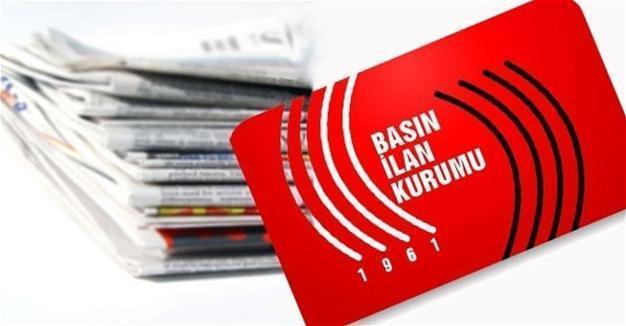Turkey to cut official ads on newspapers of journalists charged with terror links
ANKARA

Turkey’s Press Advertisement Institution, the authority for distributing official ads to newspapers, has announced that it will not direct any business to publications whose owners, partners or executives face terrorism charges, raising criticism from the opposition and a sector organization.
Newspapers who do not fire journalists who face such charges within five days will also not benefit from official ads, according to a regulation published in the Official Gazette on Oct. 5.
The new regulation also addresses the printing time of newspapers, forcing them to go to print at 5 p.m. at the earliest, three hours later than the former regulation.
The Journalists Union of Turkey (TGS) said the regulation is tantamount to interference in the content of newspapers.
The regulation will cut ads to many publications, the union said in a statement.
“In a period in which press freedom has been disregarded this much, the government is looking to silence all diverse voices,” it said.
“This is a great threat,” said Barış Yarkadaş, a main opposition Republican People’s Party (CHP) deputy and a former journalist.
“They will make a deadly strike on newspapers and magazines,” he said, adding that his lawyer would file a lawsuit against the regulation.
Meanwhile, another CHP deputy, Şenal Sarıhan, held a press conference with the representatives of a number of broadcasters recently forced off the air for on “terror propaganda” charges in the courtyard of the parliament when she was not allowed to do so inside the building.
imc TV, Hayatın Sesi TV, Van TV, Jiyan TV, Azadi TV and Zarok TV, many of which broadcast in Kurdish, were among 23 media outlets shut down as part of a decree law that was introduced as part of the state of emergency Turkey’s government imposed after the July 15 coup attempt.
“If the press shuts us, the public shuts up,” said Sarıhan, noting that democracy and human rights were necessary to prevent such infringements.
 Turkey’s Press Advertisement Institution, the authority for distributing official ads to newspapers, has announced that it will not direct any business to publications whose owners, partners or executives face terrorism charges, raising criticism from the opposition and a sector organization.
Turkey’s Press Advertisement Institution, the authority for distributing official ads to newspapers, has announced that it will not direct any business to publications whose owners, partners or executives face terrorism charges, raising criticism from the opposition and a sector organization.